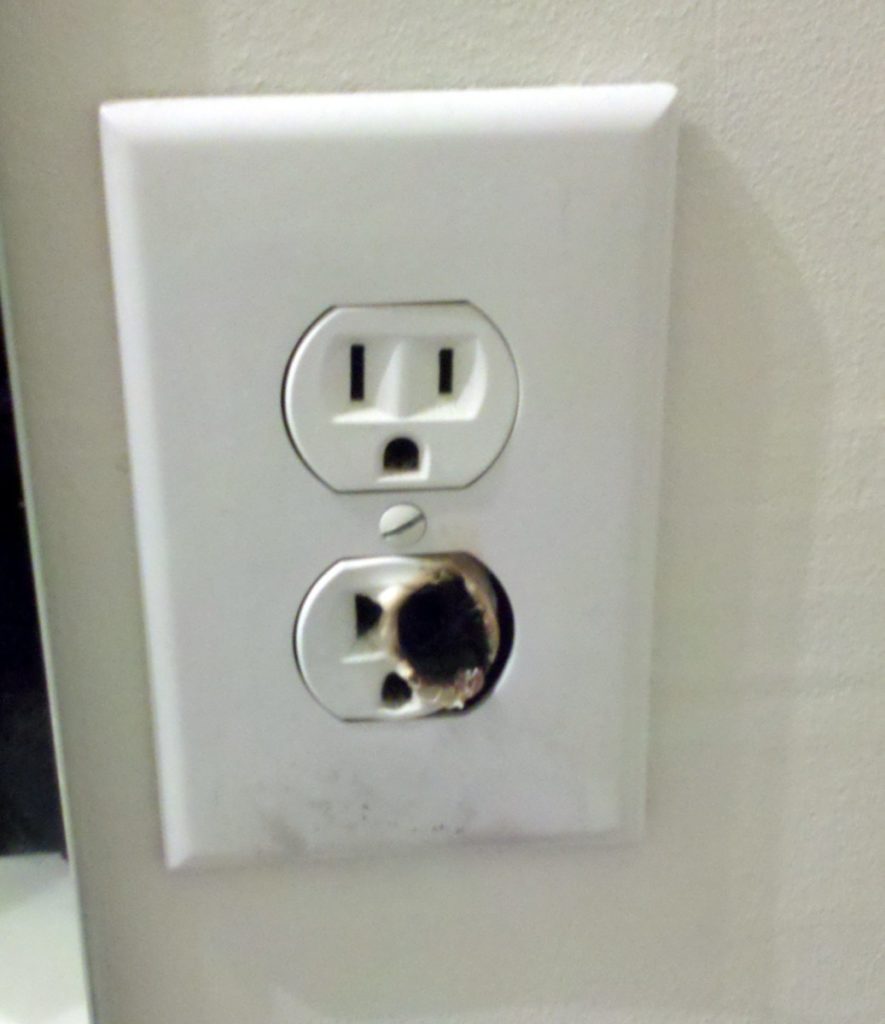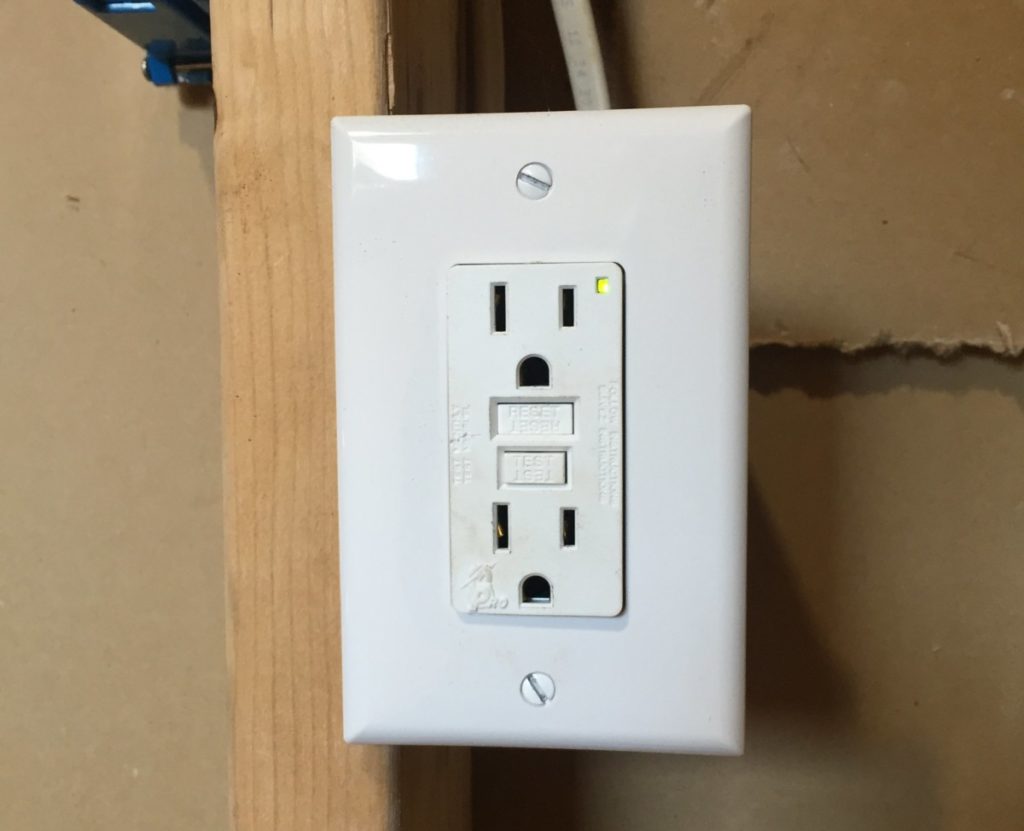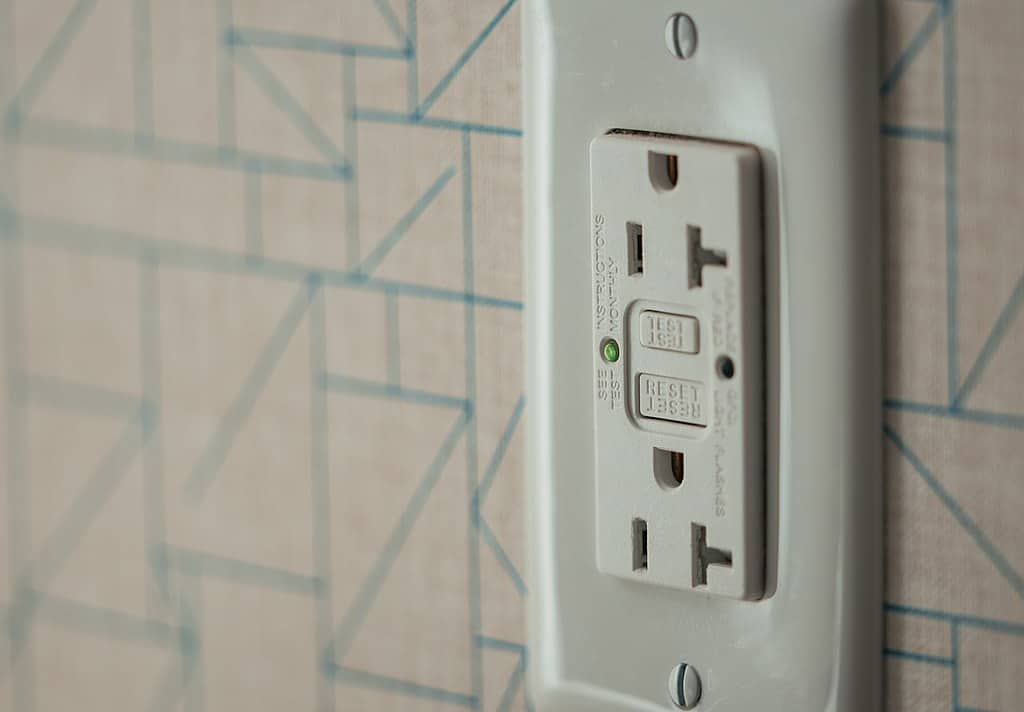One of my garage outlets has been on the fritz and needed replacing. In trying to solve this electrical problem, I learned a bit about garage outlet requirements. Turns out, you cannot use any old outlet as a replacement.
Do all garage outlets need to be GFCI? All garage outlets must be GFCI. Ground-fault circuit interrupters protect users against shock by cutting off the power when they sense a short. It is an electrical violation to have non-GFCI outlets in your garage. The NEC (National Electrical Code) made this a requirement in 2008.
GFCI outlets in your garage can save you from electrical failures and shock. It’s important to install GFCI outlets so that you stay safe. Learning a little bit about them and how they work is also helpful because replacing outlets on your own can be dangerous. If you have a bit more knowledge about them, talking to electricians will be a little easier, too.
Table of Contents
Why All Garage Outlets Need to Be GFCI
GFCI outlets keep you and your equipment safe. While the garage is where people are most likely to plug in tools, it is also one of the places in your house that is most prone to electrical outlet interference. Your garage has a number of potential electrical problems by nature of its location and function including:
- Worn insulation
- Moisture
- Dust
- Old appliances/cords
Any one of the above can interfere with the electrical current in your outlet and cause a “ground fault.” A ground fault is one of the most common electrical faults. So, stopping them from happening will fix most of your electrical faults.
No matter the cause of the ground fault, GFCI outlets in the garage help prevent you and your equipment.
Safety First

Garages are prone to weather, changing temperatures, dust, other particulates, and a number of other factors that can put your outlets on the fritz. Since you cannot fight all these potential ground fault causes, it is important to have some defenses against their detrimental impacts.
GFCI outlets are important because nothing else protects you from ground faults as effectively. Even if you follow all the other safety precautions around electricity use in your garage, without GFCI outlets, you will still be at risk of a ground fault. Therefore, if you find one of your outlets happens to not be GFCI, do not use it until you replace it.
It might be frustrating to be down an outlet, but it isn’t worth the risk. If you are tempted, just remember, GFCI outlets aren’t your first line of defense against ground faults: they’re your only defense.
[googleadsycc adunit=”inarticle”]
Resale Value
In addition to being a safety hazard, non-GFCI outlets in your garage can pose a problem when you try to sell your house. By law, appraisers are required to look for and note any electrical violation. Since GFCI outlets are required under the NEC, a non-GFCI outlet would count as a violation. Electrical violations such as this one can decrease the value of your home and/or make it harder to sell.
Thus, for both your personal safety and to prevent complications when trying to sell your home, it is important that all your garage outlets are GFCI.
What Is a Ground Fault?
A ground fault is what happens when there is an uneven electrical current in your outlet. For an outlet to function properly, there needs to be an equal flow of electricity in and out of it. If there is an imbalance, the excess energy will head straight for the ground hence why it’s called a ground fault.
Often times, the quickest way for electricity to get to the ground is through you. Otherwise, it is probably through your tools. Neither option is ideal. The former can result in a shock and the later in electrical failure.
[googleadsycc adunit=”inarticle”]
What Does GFCI Stand For?
The name of the GFCI outlet makes it easier to comprehend what it actually does. The GF in GFCI stands for “ground fault.” The “CI” stands for “circuit interrupter.” This name accurately reflects what they accomplish. To protect you against a ground fault, they interrupt the circuit.
How GFCI Outlets Work

So, we’ve figured out that GFCI outlets interrupt troublesome circuits, but how do they know when there is an issue? It turns out there is a relatively simple way for these outlets to detect disturbances in the environment.
Outlets need an equilibrium of electricity flowing out of them and into them when they are in use. When a GFCI outlet detects that there is an imbalance in the electrical current, it will interrupt the circuit. This interruption will stop the flow of electricity. This process blocks the excess electricity from escaping the current and heading towards the ground (through you).
Before I did research on how to replace my outlet, I admit, I thought electricity only flowed out of an outlet. (It is called an OUT-let after all). I found this Energy Education Council (EEC) had a lot of useful information about how GFCI outlets work. It also helped answer some of my other outlet-related questions.
Preventing ground shock is another important topic because it underscores how serious they can be. Just how much of a shock you get or the degree to which this imbalance will impact your tools – and you – is dependent on how heavy this imbalance is. A strong imbalance is especially dangerous. In severe cases, imbalances can result in death.
Not Only Garages: Where Else You Need GFCI Outlets
So GFCI outlets are required in your garage; what if the place you’re wondering about isn’t technically a garage? The answer then is, probably. The GFCI outlet requirement applies to a number of other places around your house.
Before I started paying attention to the outlets in my garage, I had no idea just how common they are. GFCI outlets are everywhere. If you are an electrical novice like me, you might not realize that you actually know what a GFCI outlet looks like too. (Hint: they are the outlets with reset buttons like in your bathroom).
In addition to your bathroom, there are a number of places in and around your home that also require GFCI outlets. This list includes:
- Appliance outlets
- Countertop outlets
- Unfinished basements/crawl-spaces
- Accessory buildings (finished or unfinished)
- Workspaces (like your garage)
- Permanent pools
- Temporary structures
The NEC has a lot of specific guidelines for where else needs GFCI outlets. If you aren’t sure whether or not a location on your property needs a GFCI outlet, try this EC&M reference. It details the full list of locations and references which bit of the NEC code applies to that space. It even has graphics to clarify.
[googleadsycc adunit=”inarticle”]
How to Install GFCI Outlets
If you’re like me, you don’t install GFCI outlets. Electricity is dangerous. Unless you are qualified and accustomed to dealing with wiring, it is better to let a pro handle replacing your outlets.
GFCI outlets are required in garages for safety reasons. Do not defeat the point of this requirement by trying to install one on your own unless you are totally confident in your electrical abilities.
Fortunately, for those of us who aren’t skilled in electrical work, replacing outlets is a relatively simple and inexpensive task for electricians. Certainly, it would be cheaper to replace them on your own. Once you factor in time and safety, however, it is almost always worth it to hire help for this type of project.
Image credits: www.jandjconstructionmt.com / Tony Webster on Flickr



my garage is over 30 years old and there are no GFCI outlets is it code if there original